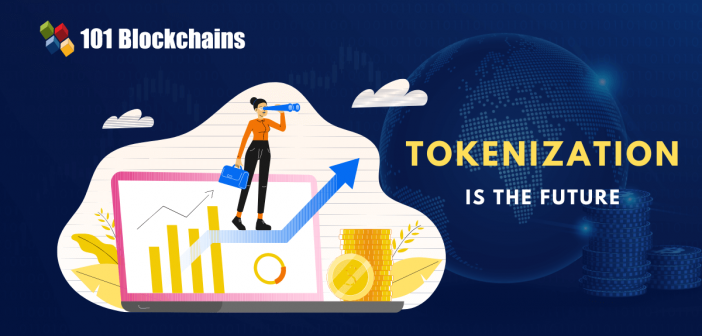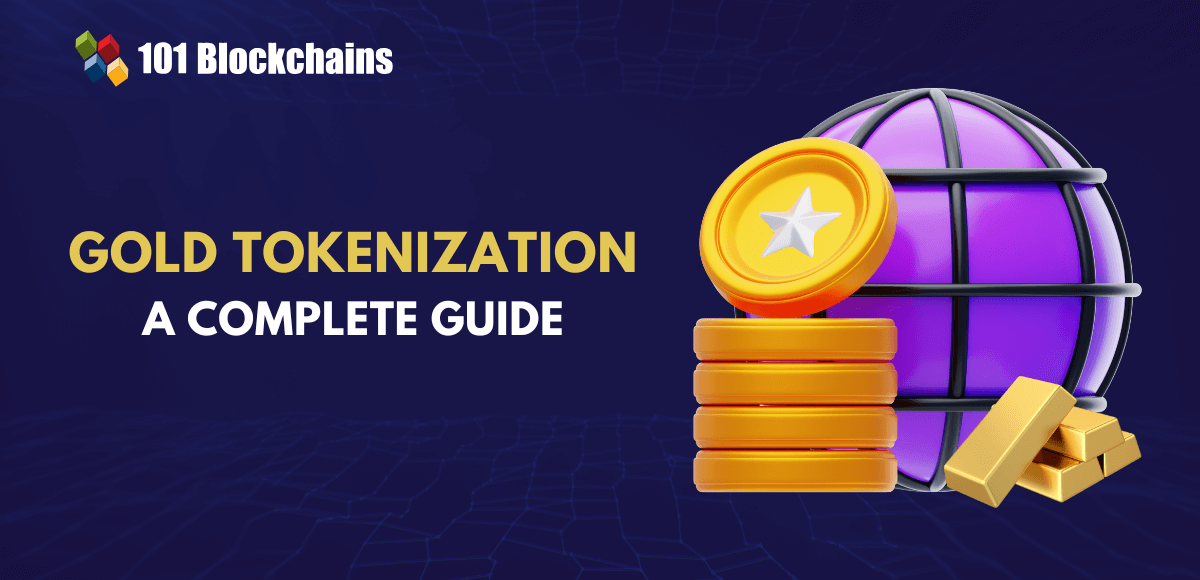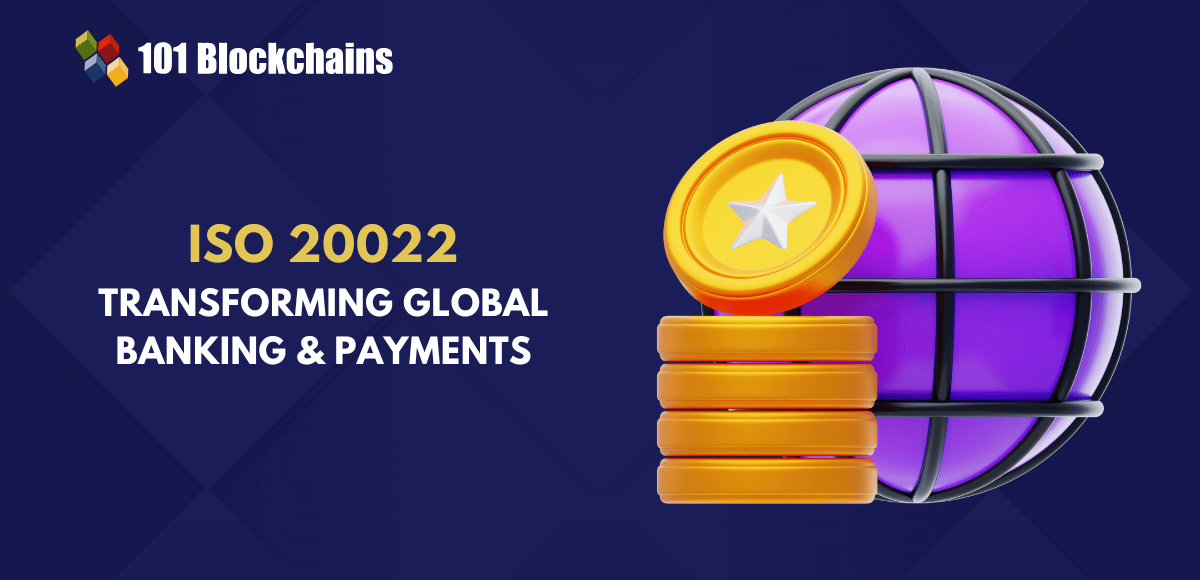Learn how blockchain truly works, master key definitions, and uncover what makes smart contracts so "smart." Dive into the fundamentals, gain valuable insights, and start your blockchain journey today!

- Guides
Diego Geroni
- on September 26, 2021
Why is Tokenization the Future?
The first glimpse of blockchain technology was quite unnerving for the world of tech in modern times. With almost every individual on the planet eager to know more about the new, futuristic technology, the popularity of blockchain spread across various sectors. Just like many other sectors which it has already transformed, blockchain has also changed the understanding and implementation of tokenization.
It has evolved as one of the most promising instruments for online commerce, especially with the scope of representing real assets in the form of virtual assets. Many industry experts are wondering about answers to ‘is tokenization the future’ for all the right reasons. However, the most credible answer to such questions can come only through reflection on the factors which ensure that tokenization is indeed the future.
Want to learn the fundamentals of tokenization and its practical implications? Enroll Now: Tokenization Fundamentals Course
Tokenization Origins
Prior to a deep dive into possible answers for ‘why tokenization is the future,’ it is important to understand tokenization. The earliest applications of tokens can be traced back to the British Empire in the 17th to 19th century when fiat currency was inaccessible. The tokens during this time served as alternatives to coins or just helped in purchasing specific items. Therefore, the identity of tokens as a valid instrument for exchanging goods, services, and value becomes quite clear.
Over time, the concept of tokenization made its way into the domain of online commerce. Tokenization is now an important tool in modern security protocols for safeguarding the payment and card information of users. With the help of tokenization, online merchants and payment service providers could transfer card data in encrypted form.
Excited to learn about the Tokenization in NLP? Check here An Overview Of Tokenization Algorithms In NLP
Blockchain and Tokenization
While the applications of tokenization have been traditionally helping in security of payment and personal financial information of users, it has found a completely new direction with blockchain technology. The arrival of blockchain-based tokenization is one of the reasons for establishing that the future will be tokenized. Tokenization in context of blockchain refers to the highly secure process of transferring ownership rights of a real-world property or financial asset to digital assets.
It is important to note that blockchain networks ensure encryption of each transaction in blocks of information alongside traceability of the transactions. As a result, blockchain-based tokenization offers a transparent, secure, and highly progressive approach for evaluation and management of any asset which has value.
Blockchain helps in safe and efficient tokenization of various real-world assets and businesses. Interestingly, the logic of the processes provides ideal justification for tokenization with many unique advantages and use cases in various industries.
Build your identity as a certified blockchain expert with 101 Blockchains’ Blockchain Certifications designed to provide enhanced career prospects.
Is Tokenization the Future?
Blockchain offers the inherent advantage of decentralization. The issues of excessive centralization due to government, states, and large corporations emerge in the form of bureaucracy, manipulation, complicated systems, uninformed decision-making, and uneven benefit distribution. Decentralization could help in optimizing any process, thereby bringing the chain of intermediaries on level ground. One of the initial concepts of tokenization in blockchain came in the form of security token offerings or STO.
The Security Token Offerings emerged after the 2017 ICO boom. With almost every startup promising huge profits for investors, the tokens were created just for internal use. The token did not have any support other than the price of Bitcoin and aspirations of entrepreneurs. Therefore, the future will be tokenized with use cases of highly significant investment projects. The Security Token Offering or STO refers to tokens that are digital counterparts of securities or just tokens with signs of securities.
Tokenized assets can represent complete or part ownership rights to other assets such as real estate, artwork, and other assets. The advantages of tokens also provide a detailed answer to why tokenization is the future. First of all, it is possible to divide any investment, property, or asset into multiple numbers of tokens. As a result, small investors could discover prolific opportunities in the investment market without having to enter investment funds.
Most importantly, tokenization could ensure simpler investor registration procedures alongside reducing the final threshold for participating in investment markets. As a result, tokenization can offer substantial prospects for creation of a securities market without having a stock exchange. Tokenization could support a simpler registration process and the process for registering ownership alongside other facets of transactions.
Curious about the Is tokenization is the future? Watch Now ON-DEMAND WEBINAR: Why Tokenization Is The Future
Know about the Scope for Tokenization
When you are trying to find answers to ‘is tokenization the future,’ you are most likely to turn towards the existing applications. The most prominent examples of blockchain-based tokenization projects have been discovered in the healthcare sector. The tokenization of personal health records and pharma supplies presents adequate promises for carrying on tokenization in the future.
In addition, tokenization has also found applications in financial payments, asset management, real estate, data management and insurance, artwork, healthcare debt, and antique and collectibles. Basically, tokenization could ensure that an individual’s assets would include their social connections and professional skills apart from their money. The future will be tokenized in terms of possibilities for tokenization of intangible entities such as time, ideas, or abilities. Therefore, it is reasonable to consider the validity of the fact that tokenization is actually the future.
-
Tokenization Applications in Various Sectors
The discussion around applications of tokenization has started to gain momentum. According to the panel of experts at the World Economic Forum, examples of asset tokenization show good promises for the future. You can tokenize a property or gain ownership of a fraction of an artwork. However, the answer to ‘why tokenization is the future’ became quite clear with the use case of tokenization in farming.
Tokenization could help farmers in emerging markets to sell future crop yields for raising finance. In addition, tokenization can also help athletes in selling the rights to their income in future. While all these possibilities have adequate potential, the most successful use case of tokenization has been identified in CBDCs.
It is important to note that tokenization of financial assets and development of a ‘long tail’ of capital markets supersedes CBDC as a concept. On the other hand, it is reasonable to consider CBDCs as just another generalized digital asset. However, this digital asset would have an association with risk-free central bank money. The applications of tokenization in investment markets stand as the top chances for growth of tokenization in the future. However, it is important to reflect on the factors which would drive the future of tokenization.
Check out our guide to find the Differences between Tokenization Vs Encryption.
Value Offered by Tokenization
In order to find out how the future will be tokenized, it is important to reflect on the different value advantages of tokenization. The benefits of asset tokenization could clearly showcase the reasons for which enterprises or users would go for it.
-
Security of Information
The foremost value advantage associated with tokenization refers to the usability of tokens only in the systems where they operate. As a result, it can enable better safeguards for sensitive data. Unlike encryption, agents with a key for solving the ciphertext could not be able to obtain the initial data. In the case of tokenization, the ciphertext does not feature any personal information. Therefore, any individual with access to the ciphertext could not steal personal data of users or use it for malicious purposes.
-
Fractional Ownership
The next important aspect for verifying ‘why tokenization is the future’ refers to the benefit of fractionality. Asset tokenization enables the division of tokens into multiple parts. As a result, the shares of a token could help in transferring ownership of the part of asset assigned to the fraction. So, users don’t have to divide an asset physically into multiple parts for enabling trading. Therefore, tokenization can also redefine the conventional norms of asset ownership by encouraging the scope for fractional ownership. Most importantly, fractional ownership could also open the doors to traditionally illiquid markets for investors.
Aspiring to build a successful career in Blockchain? Enroll in our Enterprise Blockchains Fundamentals and get started!
-
Better Transactions
The shift towards tokenization in the future could also play a significant role in enhancing transactions of assets. While fractionality can enable better prospects for ownership, tokenization also improves the speed of transactions involving real-world assets. Tokenization could also contribute to safety of transactions of real assets while ensuring enhanced simplicity and convenience.
Bringing in the basic precedent of blockchain technology, tokenization helps in reducing the need for interacting with intermediaries. The doubts over ‘is tokenization the future’ find room for clarity in the case of use cases for stock traders. Asset tokenization in stock market trading could help in resolving one of the formidable concerns for trading, i.e., paperwork.
Apart from removing the need for complicated paperwork, tokenization also enables a flexible approach for selling and purchasing assets. Therefore, stock market traders wouldn’t have to depend on asset management companies for managing their asset portfolios.
Concerns for Future of Tokenization
The benefits of tokenization definitely showcase proof that the future will be tokenized. However, it is also important to take the setbacks with tokenization into account before concluding about its future. The possibilities for widespread adoption of tokenization in the future depend considerably on understanding and resolution of its critical setbacks. Here are some of the notable pitfalls which could affect the growth of tokenization in future.
-
Limited Practice-based Evidence
Tokenization has garnered widespread attention in the financial market with flexibility for transferring rights of a real object to digital assets. Tokenization definitely breaks the barriers to participation of investors in a wide range of investment markets. However, there is no particular consensus regarding the speculative growth for the value of the related asset. How would tokenization apply in such cases? Without the lack of adequate practice-based evidence, it is impossible to determine the efficiency of tokenization.
-
Problems with Trust
The answers to ‘is tokenization the future’ depend considerably on the concerns of trust. The problems related to trust frequently emerge in the case of tokenization. It is important to note that the creator of a token cannot serve as a regulated financial institution. As a result, the security of the asset is unlikely to have documented evidence, thereby restricting its validity in court.
Therefore, business models in tokenization have to rely profoundly on authority and trust. On the other hand, these patterns are commonly evident in scenarios involving the formation of a bubble. Investors in financial markets come under the supervision of regulators to develop an accounting system to reduce concerns of fraud. Regulatory authorities could have limited powers in tokenization of shares, especially with sellers avoiding recognition of their product as security tokens.
Want to build Customer Loyalty through Tokenization? Check out this detailed guide to learn the use of Tokenization for Loyalty Programs.
-
Lack of Regulations
Another formidable issue in the adoption of tokenization in the future comes in the form of a lack of regulations. Assets with limited liquidity are suitable candidates for tokenization, especially in examples of artworks and real estate. Apart from dividing ownership rights of an asset into different shares, tokenization could also enable using an asset as collateral. However, illiquid assets can be an opportunity as well as a risk. Without any recognized regulation, business models following tokenization often focus on the physical nature of underlying assets.
-
Lack of Infrastructure
The lack of a working system for tokenization of real assets or financial entities available on the market could be another setback for tokenization. While you are thinking of how the future will be tokenized, asset tokenization presents some notable technological limitations. For example, the current IT infrastructure adopted in financial markets cannot cope with smart contract logic.
Important Ingredients for Successful Tokenization
In order to achieve success with tokenization, it is important to focus on the following aspects,
- Offering interaction algorithms to each participant in the decentralized system
- Establishing a clear mechanism for token management and controlling the processes for issuing and burning tokens
- Maintaining consistency with legal and taxation facets of tokenization
- Offers a mechanism for withdrawal, input, and exchange of assets alongside suitable software for the same
Final Verdict
Therefore, it is quite clear that the future will be tokenized only if existing challenges find reliable solutions. Tokenization presents adequate scope for limitless possibilities across various sectors. However, it is a relatively new concept and would require some improvements. For example, strengthening legal regulations around tokenization could help in improving trust in tokenization.
Furthermore, the possibilities of transforming the management and transaction of real-world assets with tokenization indicate its potential for the future. You can start learning more about tokenization and how it will change the future in our recently conducted webinar “Why Tokenization is The Future.” Get your access to the webinar here right now!
*Disclaimer: The article should not be taken as, and is not intended to provide any investment advice. Claims made in this article do not constitute investment advice and should not be taken as such. 101 Blockchains shall not be responsible for any loss sustained by any person who relies on this article. Do your own research!






